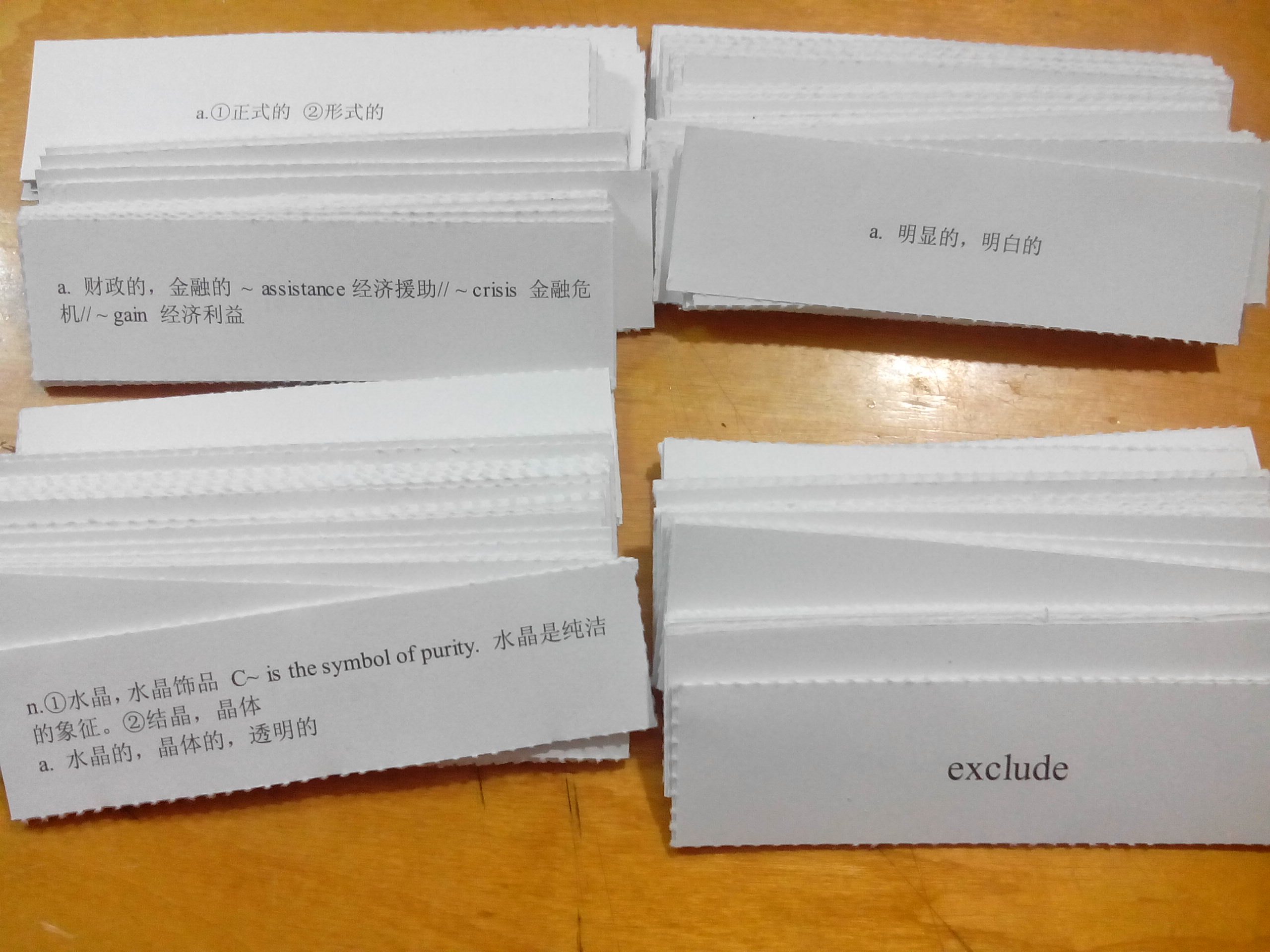 返回
教育头条
返回
教育头条

考研英语翻译真题天天练习
2019年考研英语(一)翻译真题,英语学习就是靠的日积月累,每天多学一点,考试时就多一分信心。
It was only after I started to write a weekly column about the medical journals, and began to read scientific papers from beginning to end, that I realised just how bad much of the medical literature frequently was. I came to recognise various signs of a bad paper: the kind of paper that purports to show that people who eat more than one kilo of broccoli a week were 1.17 times more likely than those who eat less to suffer late in life from pernicious anaemia. (46) There is a great deal of this kind of nonsense in the medical journals which, when taken up by broadcasters and the lay press, generates both health scares and short-lived dietary enthusiasms.
直到我开始每周写一篇关于医学期刊的专栏,并从头到尾阅读科学论文之后,我才意识到糟糕的医学文献中出现得有多么频繁。我开始认识到一份糟糕的论文的各种迹象:有一篇论文声称每周吃一公斤以上花椰菜的人比那些吃得少的人晚年患恶性贫血的可能性高1.17倍。在医学期刊上,有很多这样的无稽之谈,当这些被广播公司和新闻媒体报道时,既会引起健康恐慌,也会引起短暂的饮食狂热。
Why is so much bad science published? A recent paper, titled “The Natural Selection of Bad Science”, published on the Royal Society’s open science website, attempts to answer this intriguing and important question. It says that the problem is not merely that people do bad science, but that our current system of career advancement positively encourages it. What is important is not truth, but publication, which has become almost an end in itself. There has been a kind of inflationary process at work: (47) nowadays anyone applying for a research post has to have published twice the number of papers that would have been required for the same post only 10 years ago. Never mind the quality, then, count the number.
为什么发表这么多糟糕的科学期刊?近发表在英国皇家学会开放科学网站上的一篇题为《不良科学的自然选择》的论文试图回答这个有趣而重要的问题。它说,问题不仅在于人们做了糟糕的科研,而且我们目前的职业发展体系积极地鼓励了这种科研发展。重要的不是真理,而是论文的出版,它本身几乎成了一种终目的。有一种数量膨胀的过程在起作用:如今,任何申请研究职位的人必须发表的论文数量是10年前同一职位所需论文数量的两倍。别在意质量,只看数量就行。
Attempts have been made to curb this tendency, for example, by trying to incorporate some measure of quality as well as quantity into the assessment of an applicant’s papers. This is the famed citation index, that is to say the number of times a paper has been quoted elsewhere in the scientific literature, the assumption being that an important paper will be cited more often than one of small account. (49) This would be reasonable if it were not for the fact that scientists can easily arrange to cite themselves in their future publications, or get associates to do so for them in return for similar favours.

人们已经做出努力来遏制这种倾向,即将一些质量和数量纳入申请人发表的论文的评估当中。那就是著名的引文索引,也就是说一篇论文在科学文献中被引用的次数,这种假设是一篇重要的论文被引用的次数将会多于一篇不重要的论文。(49)如果科学家们事实上不能很容易地在将来的出版物中引用自己的文献,或者让同事为他们这样做以换取类似的好处,那这将是合理的。
Boiling down an individual’s output to simple metrics, such as number of publications or journal impacts, entails considerable savings in time, energy and ambiguity. Unfortunately, the long-term costs of using simple quantitative metrics to assess researcher merit are likely to be quite great. (50) If we are serious about ensuring that our science is both meaningful and reproducible, we must ensure that our institutions encourage that kind of science.
将一个人的产出归结为简单的指标,如出版物数量或期刊影响,可以节省大量的时间、精力和不确定性。但不幸的是,使用简单的定量指标来评估研究者的绩效的长期成本可能相当高。如果我们真的想确保科学既有意义又有可再生,那么我们必须确保我们的制度可以激励这种科学的发展。
It was only after I started to write a weekly column about the medical journals, and began to read scientific papers from beginning to end, that I realised just how bad much of the medical literature frequently was. I came to recognise various signs of a bad paper: the kind of paper that purports to show that people who eat more than one kilo of broccoli a week were 1.17 times more likely than those who eat less to suffer late in life from pernicious anaemia. (46) There is a great deal of this kind of nonsense in the medical journals which, when taken up by broadcasters and the lay press, generates both health scares and short-lived dietary enthusiasms.
直到我开始每周写一篇关于医学期刊的专栏,并从头到尾阅读科学论文之后,我才意识到糟糕的医学文献中出现得有多么频繁。我开始认识到一份糟糕的论文的各种迹象:有一篇论文声称每周吃一公斤以上花椰菜的人比那些吃得少的人晚年患恶性贫血的可能性高1.17倍。在医学期刊上,有很多这样的无稽之谈,当这些被广播公司和新闻媒体报道时,既会引起健康恐慌,也会引起短暂的饮食狂热。
Why is so much bad science published? A recent paper, titled “The Natural Selection of Bad Science”, published on the Royal Society’s open science website, attempts to answer this intriguing and important question. It says that the problem is not merely that people do bad science, but that our current system of career advancement positively encourages it. What is important is not truth, but publication, which has become almost an end in itself. There has been a kind of inflationary process at work: (47) nowadays anyone applying for a research post has to have published twice the number of papers that would have been required for the same post only 10 years ago. Never mind the quality, then, count the number.
为什么发表这么多糟糕的科学期刊?近发表在英国皇家学会开放科学网站上的一篇题为《不良科学的自然选择》的论文试图回答这个有趣而重要的问题。它说,问题不仅在于人们做了糟糕的科研,而且我们目前的职业发展体系积极地鼓励了这种科研发展。重要的不是真理,而是论文的出版,它本身几乎成了一种终目的。有一种数量膨胀的过程在起作用:如今,任何申请研究职位的人必须发表的论文数量是10年前同一职位所需论文数量的两倍。别在意质量,只看数量就行。
Attempts have been made to curb this tendency, for example, by trying to incorporate some measure of quality as well as quantity into the assessment of an applicant’s papers. This is the famed citation index, that is to say the number of times a paper has been quoted elsewhere in the scientific literature, the assumption being that an important paper will be cited more often than one of small account. (49) This would be reasonable if it were not for the fact that scientists can easily arrange to cite themselves in their future publications, or get associates to do so for them in return for similar favours.

人们已经做出努力来遏制这种倾向,即将一些质量和数量纳入申请人发表的论文的评估当中。那就是著名的引文索引,也就是说一篇论文在科学文献中被引用的次数,这种假设是一篇重要的论文被引用的次数将会多于一篇不重要的论文。(49)如果科学家们事实上不能很容易地在将来的出版物中引用自己的文献,或者让同事为他们这样做以换取类似的好处,那这将是合理的。
Boiling down an individual’s output to simple metrics, such as number of publications or journal impacts, entails considerable savings in time, energy and ambiguity. Unfortunately, the long-term costs of using simple quantitative metrics to assess researcher merit are likely to be quite great. (50) If we are serious about ensuring that our science is both meaningful and reproducible, we must ensure that our institutions encourage that kind of science.
将一个人的产出归结为简单的指标,如出版物数量或期刊影响,可以节省大量的时间、精力和不确定性。但不幸的是,使用简单的定量指标来评估研究者的绩效的长期成本可能相当高。如果我们真的想确保科学既有意义又有可再生,那么我们必须确保我们的制度可以激励这种科学的发展。
以上内容为教育宝【王敏】编辑整理的内容,我已开通官方个人微信号(18560125702)。选考研英语课程,不焦虑!就让我来帮助你,就像帮助我自己,如果需要获得帮助,建议您加加我微信,可以十分便捷的和我充分互动交流,我会为您提供答疑指导等一条龙学习服务!返回教育宝头条
【免责声明】本文仅代表作者本人观点,与教育宝无关。教育宝对文中陈述、观点判断保持中立,不对所包含内容的准确性、可靠性或完整性提供任何保证。请读者仅作参考,特此声明!
相关推荐
-
复试是考研中很关键的一步在口语和听力部分有什么诀窍可以保证高分
考研英语 2018年08月15日 16:55:44 -
考研英语 2018年08月22日 00:53:16
-
考研英语 2018年09月19日 09:57:04
-
雅思阅读Global Warming in New Zealand真题讲解
考研英语 2018年09月19日 09:57:08 -
考研英语 2018年09月19日 13:41:54





